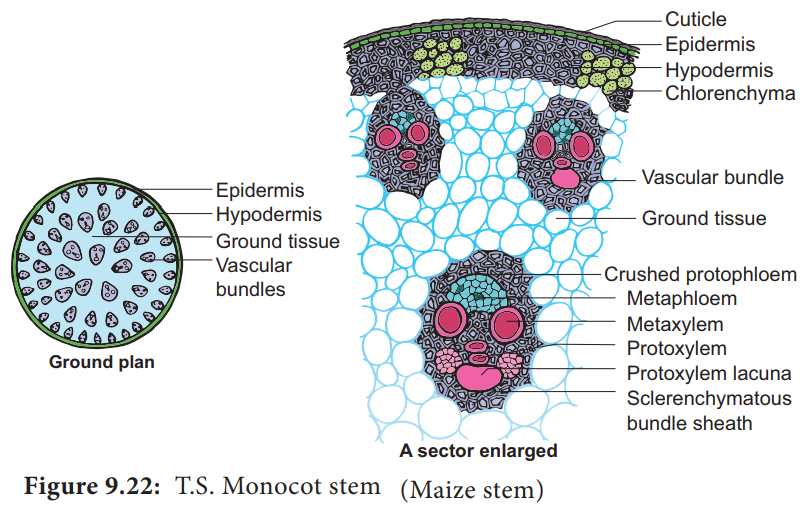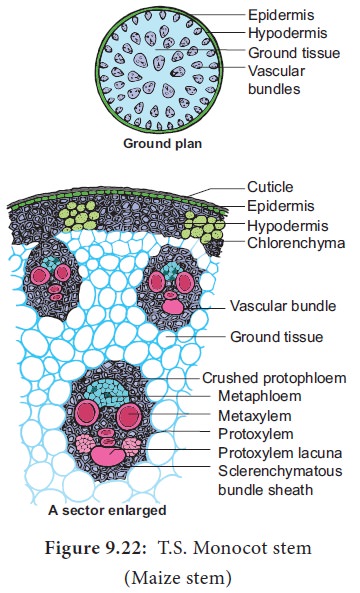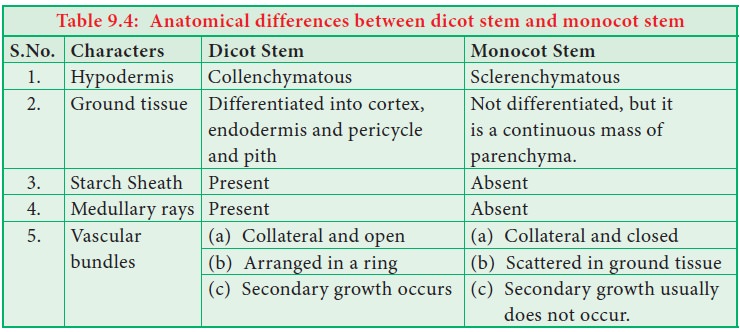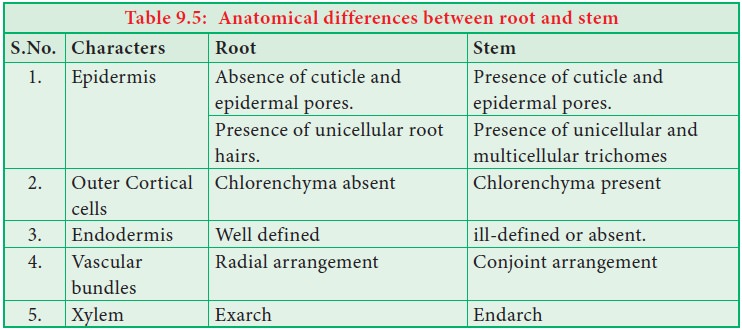Chapter: 11th Botany : Chapter 9 : Tissue and Tissue System
Anatomy and Primary Structure of Monocot Stem-maize Stem

Primary Structure of Monocot
Stem-maize Stem
The outline of the maize in transverse section is more or less circular. The transverse section of the monocot stem [maize] shows the following plan of arrangement of tissues from the periphery to the centre.
Epidermis
It is the
outermost layer of the stem. It is made up of single layer of tightly packed
parenchymatous cells. Their outer walls are covered with thick cuticle. The
continuity of this layer may be broken here and there by the presence of a few
stomata. There are no epidermal outgrowths.
Hypodermis
A few
layer of sclerenchymatous cells lying below the epidermis constitute the
hypodermis. This layer gives mechanical strength to the plant. It is interrupted here and there by
chlorenchyma cells.
Ground Tissue
There is
no distinction into cortex, endodermis, pericycle and pith. The entire mass of
parenchyma cells lying inner to the hypodermis forms the ground tissue.
![]()
The cell
wall is made up of cellulose. The
cells contain reserve food material like starch.
The cells of the ground tissue next to the hypodermis are smaller in size,
polygonal in shape and compactly arranged.
Towards
the centre, the cells are loosely arranged, rounded in shape and bigger in
size. The vascular bundles lie embedded in this tissue. The ground tissue
stores food and performs gaseous exchange.
Vascular Bundles
Vascular
bundles are scattered (atactostele) in the parenchymatous ground tissue. Each vascular bundle is surrounded by a sheath of
sclerenchy-matous fibres called bundle
sheath. The vascular bundles are conjoint,
collateral, endarch and closed.Vascular bundles are numerous, small and closely arranged
in the peripheral portion. Towards the cen-tre, the bundles are comparatively
large in size and loosely arranged. Vascular bun-dles are skull or oval shaped.

Phloem
The
phloem in the monocot stem consists of sieve tubes and companion cells. Phloem
parenchyma and phloem fibres are absent. It can be distinguished into an outer
crushed protophloem and an inner metaphloem.
Xylem
Xylem
vessels are arranged in the form of ’Y’
the two metaxylem vessels are located at the upper two arms and one or two
protoxylem vessels at the base. In a mature bundle, the lowest protoxylem
disintegrates and forms a cavity known as protoxylem
lacuna.


Related Topics